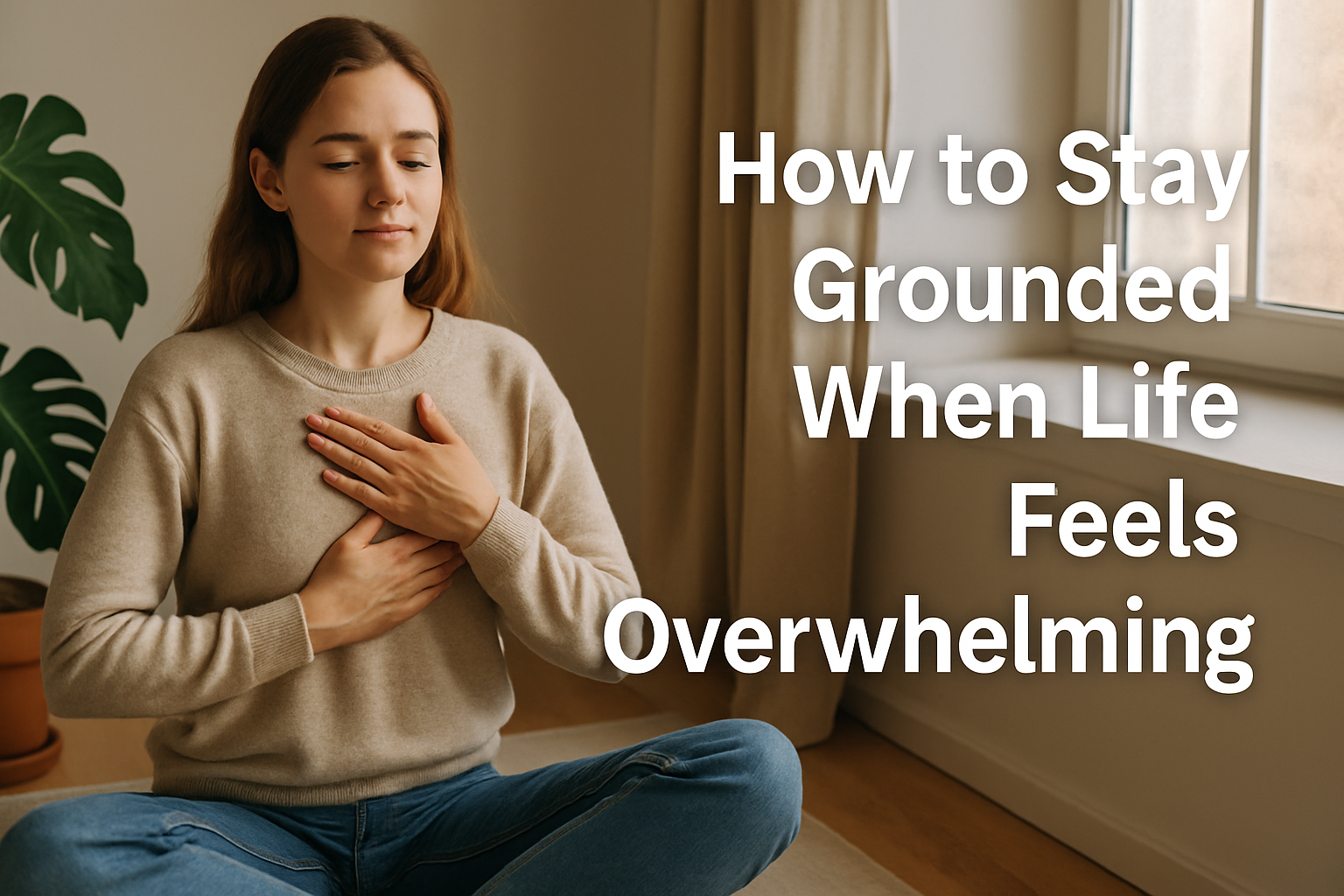Life can feel like too much sometimes. Deadlines pile up, emotions run high, unexpected problems show up, and your nervous system goes into overdrive. In moments like these, it’s easy to spiral into anxiety, confusion, or burnout.
That’s when you need grounding — the practice of reconnecting with the present moment, calming your nervous system, and finding stability from the inside out.
In this article, you’ll learn simple, practical techniques to stay grounded, centered, and calm — no matter what life throws at you.
What Does It Mean to Be Grounded?
Being grounded means:
- Feeling present and connected to your body
- Thinking clearly under pressure
- Responding, not reacting
- Regulating your emotions
- Feeling steady even when things are chaotic around you
Grounding is not denial or numbing — it’s stabilizing yourself so you can move forward with clarity.
Why You Feel Ungrounded
You may feel ungrounded when:
- You’re overwhelmed by decisions or emotions
- You’ve been overstimulated (screens, noise, multitasking)
- You’re disconnected from your body or nature
- You’re caught in worry about the future or regret from the past
- You haven’t had space to rest or reflect
The goal isn’t to avoid stress — but to re-center when it happens.
1. Use Deep, Intentional Breathing
One of the fastest ways to ground yourself is through your breath.
Try this simple breathing pattern:
- Inhale through your nose for 4 seconds
- Hold for 2 seconds
- Exhale slowly through your mouth for 6 seconds
- Repeat for 1–3 minutes
Long exhales signal safety to your nervous system.
2. Activate Your Senses (5-4-3-2-1 Technique)
This classic grounding technique brings your awareness to the physical world.
Name:
- 5 things you can see
- 4 things you can touch
- 3 things you can hear
- 2 things you can smell
- 1 thing you can taste
This shifts your focus away from thoughts and into the present.
3. Plant Your Feet and Feel the Ground
Take a moment to stand or sit still. Press your feet flat on the floor or earth.
Say silently:
- “I am here.”
- “I am supported.”
- “I am safe in this moment.”
Feel the connection between your body and the ground beneath you.
4. Do a Body Scan
Bring your awareness from your head down through your body, noticing each part without judgment.
Ask:
- Where do I feel tension?
- What part of my body feels heavy, light, warm, cold?
- Can I soften any tight areas?
This connects your mind back to your body — a key to grounding.
5. Touch Something With Texture
Pick up an object (a stone, fabric, wood, etc.) and focus fully on its texture.
Notice:
- Is it rough or smooth?
- Warm or cool?
- Heavy or light?
This tactile input calms your sensory system and helps break mental loops.
6. Limit Inputs and Stimuli
Overstimulation makes it harder to feel grounded.
Try:
- Turning off your phone for 30 minutes
- Sitting in silence or low light
- Reducing background noise (TV, music, open tabs)
Simplifying your environment supports internal calm.
7. Go Outside and Connect With Nature
Nature has a calming, regulating effect on the nervous system.
Try:
- Walking barefoot on grass
- Touching a tree or rock
- Watching clouds or the sky
- Listening to natural sounds
Even a few minutes can restore balance.
8. Move Slowly and Intentionally
Fast, frantic movement increases anxious energy. Slow your pace.
- Walk slowly and notice your steps
- Stretch your arms and shoulders
- Roll your neck or do gentle yoga
Physical movement resets your internal rhythm.
9. Use a Grounding Phrase or Mantra
Repeat a calming phrase to yourself, such as:
- “This moment is enough.”
- “I am anchored in my body.”
- “I don’t need to figure everything out right now.”
Words help focus the mind and regulate emotion.
10. Create a Grounding Ritual
Build a short, daily practice that helps you reset.
Your ritual might include:
- Lighting a candle and breathing for 2 minutes
- Journaling 3 things that anchor you
- Drinking tea while watching the sunrise or sunset
Consistency reinforces your ability to stay steady in daily life.
Final Thought: Grounding Is a Daily Skill, Not a One-Time Fix
You don’t have to wait until you’re overwhelmed to ground yourself. Make it part of your daily rhythm. Practice during small moments — not just big ones.
When life feels like it’s spinning, come back to your breath, your body, your senses. You’re not lost. You just need to return to where you are.
